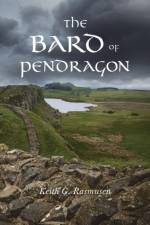av Keith G Rasmusen
287
Jesus finished describing the events which would precede the end of the age, and signify his return. He then told his disciples, "Truly I say to you, this generation will not pass away until all these things take place" (Matthew 24:34). What if Jesus really meant what he said? Now an exciting new discovery sheds light on this ancient mystery, and the whole story is told in this book:The day was dawning on the second Sunday of December, 131 C.E. For many, this would be their last day in Jerusalem; by sunset, not one of these would remain. During the night, alarming news had come to their attention: The Roman emperor Hadrian had kept his promise, and the huge statue of Jupiter was now standing upon the site of the former Jewish Temple. Meanwhile, outside the Holy City, the Jews were gathering to finalize their plans for a revolt against their Roman oppressors. Hadrian had gone too far. Soon the nation of Israel would rise up under the command of Shime'on ben Kosiba, known as Bar Kochba, "Son of the Star." He was rumored to possess superhuman strength and supernatural abilities, and was hailed by many as the long-awaited Messiah. On one side of this conflict was the fearsome might of the Roman Empire, a vast, disciplined army led by the Emperor himself. On the other side was the small nation of Israel, whose leaders included the ancient and charismatic rabbi Akiba ben Joseph. He was the religious leader of the Jews and famed Kabbalistic master, a man of such miraculous powers as to call fire down from heaven. Caught in the middle was the new sect known as the Nazarenes, or Jewish Christians, who interpreted these recent events as a fulfillment of Jesus' prophecies predicting the "end of the age". And one man was there to see it all - from the very beginning to its tragic conclusion, and to record these events for posterity: Flavius Boadicus, also known as Gaelbyrth Macus Aldynn, the Bard of Pendragon.

